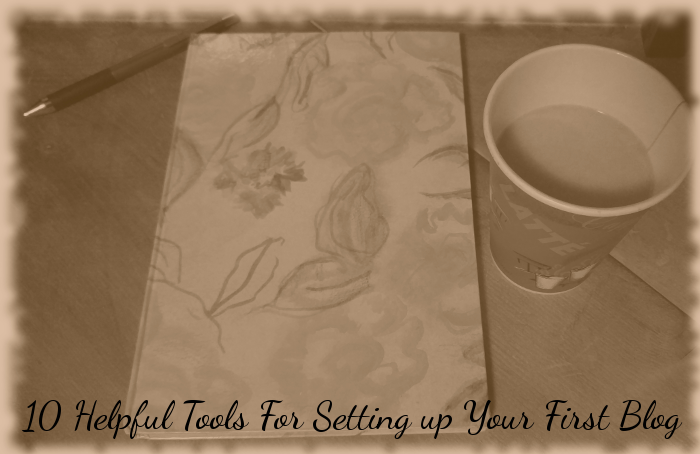
This is a sponsored post.
Starting a new blog is a big project. If you’re dipping your toe in the water for the first time, it can be hard to know where to start, so today I’m sharing 10 helpful tools to assist you:
1. Hosting: There are lots of free platforms available for starting a blog if you just want to put together something quickly for fun, but if you’re planning on using your blog professionally, then you will want to purchase hosting and a domain name. This doesn’t have to be a big investment: Small hosting packages start around $10 per month, and you can register an inexpensive domain name on GoDaddy.com – check RetailMeNot for coupons and you can usually get a URL for around a dollar!
2. Blogging Platform: I use WordPress to create and run all of my websites and highly recommend it. There are many in-depth tutorials that are just a click away on Google, so you can learn your way around it and set it up yourself, or you can hire a web designer to do everything for you.
3. Stats: It’s crucial to set up a system for analyzing traffic and search data on your blog. I personally use a combination of AWStats and Google Analytics. If you want to go even deeper than that, Profisee MDM has a roundup of 30+ more data management tools that you can check out.
4. Graphics: You’re going to need an image program to create and edit photos for your blog posts. Adobe Photoshop is the gold standard for graphics, but if you’re just starting out, you’re probably going to want to keep it simple. I like GIMP, an open source image editing program, while many others find PicMonkey to be an easy-to-use tool.
5. SEO: “Search engine optimization” is exactly what it sounds like: The process of making your content easier to find on search engines. For example, you might write a great post about your Grandma’s one-dish creamed chicken recipe, but if most people are searching for “Creamed chicken casserole” instead, they’re more likely to miss your post because of the word choice. You shouldn’t sacrifice originality, but there are occasions where small tweaks that don’t impact a piece creatively can better target them to be found among the billions of posts on the Internet. Two good tools for learning your way around this is Google’s Keyword Planner tool and the Yoast plugin for WordPress.
6. Writing: Back in the old days, I used to keep a dictionary and thesaurus by my typewriter (!). Nowadays, everything is just a click away online! Spellcheck will automatically catch most spelling errors, but Merriam-Webster is still your friend for verifying word definitions. I use the Dict.org online thesaurus when I’m writing something redundant and need inspiration for alternative phrases.
7. Editorial Calendar: Whatever posting schedule you decide on, you’ll need a way to keep track of what you’re publishing, deadlines, and other to-dos. I personally use a pen and paper planner because that system works best for my brain, but the almighty Google Calendar is a good virtual option for those who prefer to keep track of their schedule in the cloud.
8. SPAM: Oh, you got your first blog comment! Oh – it’s SPAM. All blogs get inundated with SPAM, so you will need a filter to keep it manageable. Akismet is an anti-spam plugin for WordPress with plans starting at $5 a month, while Antispam Bee is a free alternative.
9. Social Sharing: If you don’t have an easy way for people to share your content, they won’t! Make sure you have a plugin that will add social sharing buttons to your posts so that people can easily share your post on Facebook, Twitter, and so on. I use the plugin Shareaholic for this purpose.
10. Caffeine: Setting up your first blog is a huge job, so stock up on the coffee – you’re going to need it!
What are your favorite blogging tools?









Es fundamental implantar en el día a día unos hábitos de vida saludables, tales como una correcta alimentación y nutrición, practicar deporte y mantener unas horas de sueño suficientes y, muy importante, que den un descanso de calidad. En ausencia de problemas de salud física, debemos profundizar un poco más para determinar la causa subyacente de la disfunción eréctil.
Inpatient Drug Treatment Centers Near Me http://aaa-rehab.com Alcohol Rehab Centers http://aaa-rehab.com Drug And Alcohol Rehab
http://aaa-rehab.com